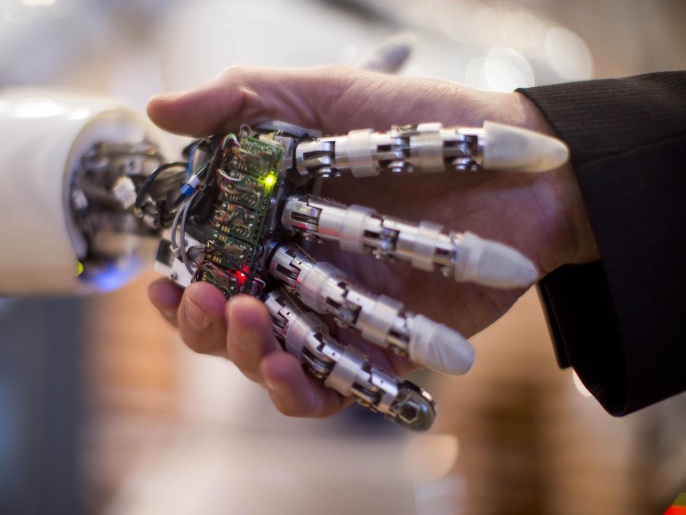The term artificial intelligence was invented in 1956, and since that time until now it has become more common and used in various fields thanks to the increase in data volume, advanced algorithms, and successive improvements in computing and storage power.
And artificial intelligence is an attempt to teach machines to simulate human mental abilities and their patterns of work, in order to facilitate human life, and to make machines perform many tasks that used to take a great deal of effort and time from humans.
While Hollywood films and science fiction novels portray artificial intelligence as human-like robots that will take over the world and eliminate humanity, the current development of artificial intelligence technologies is not so scary, or so clever.
Instead, artificial intelligence has evolved to provide many specific advantages in each industry to serve humanity and help its progress and prosperity.
A study recently published by the Science Direct platform stated that artificial intelligence has emerged as a top technology priority for companies and organizations over the past few years, largely driven by the availability of big data and the emergence of new technologies and advanced infrastructure. Artificial intelligence has grown by 270% in the past four years.
It is no wonder that artificial intelligence is able to provide major competitive advantages to these companies in the labor market, and is also useful in creating more efficient infrastructure, and having a positive impact on aspects of life.
That is why countries and governments are crafting national AI strategies to ensure they are not missed as it has the potential to provide an additional $13 trillion in global economic activity by 2030, or about 16% of cumulative GDP compared to today, Forbes reported in a report. Recently.
In fact, the world before artificial intelligence is not the same world after it, as change affects everything around us, and reaches all sectors to change them permanently, as it can contribute to the improvement of every product, and in fact, artificial intelligence is able to transform the future of humanity for the better if it is used well. .
Everything has limits, even artificial intelligence
However, there are limits to what artificial intelligence can achieve, and what it can and cannot do, such as the ability to analyze and think by analogy as humans do, said Dr. Claire Stephenson, associate professor of psychoanalytic methods in the School of Social Sciences at the University of Amsterdam, she said, "Artificial intelligence can process more information than humans, but this intelligence is not comparable to humans' ability to think by analogy, and this type of logical thinking based on cause and effect is considered the greatest strength of human intelligence, as humans can think of solutions to new problems that they may face in life, compared to similar previous situations that occurred in the past, and this ability is virtually absent from artificial intelligence.”
Artificial intelligence can transform the future of humanity for the better if it is used properly (Getty Images)
In this context, the Analytics Insight platform mentioned 5 things that artificial intelligence cannot do, no matter how strong and capable it is, which are:
Make ethical decisions
People are used to making instant moral decisions based on their quick analysis of their surroundings and the situation in which they find themselves.
However, machines cannot do this as AI makes decisions based on the data it is fed into and the rules by which it is directed, and although machines can fully comply with the law, there is no guarantee that this intelligence will be rational, or considerate The ethical side when making important decisions.
Invention based on self-will
Scientifically speaking, human society has grown and evolved slowly over millions of years until we got to where we are now, and in this long walk humans have invented many things based on their need, from the plow to spacecraft.
Although machines are designed to imitate humans, they cannot invent anything on their own will. All their innovations are directed and designed by humans, and what they need.
Learning through experience
As mentioned, humans have learned and created things as they grew and developed, but AI is different in that machines are fed with data rather than learning or realizing it over time.
Therefore, in artificial intelligence there is no such thing as learning from experience except within a very limited and pre-programmed scope.
Writing computer programs
Writing computer programs requires a deep understanding of the real world, and the ability to turn those complexities into rules. Despite a lot of progress and more computational power, AI does not have the ability to understand the real world so deep that it can write a computer program alone without any human intervention.
Answering perplexing questions
Artificial intelligence is well known for its ability to solve problems and provide data-driven answers, and it may take humans days and months to discover the solution provided by artificial intelligence very quickly beyond the scope of human ability, and despite that it cannot solve some perplexing questions such as what is scientifically known as a problem Hilbert's 10th problem The AI couldn't solve this problem.

